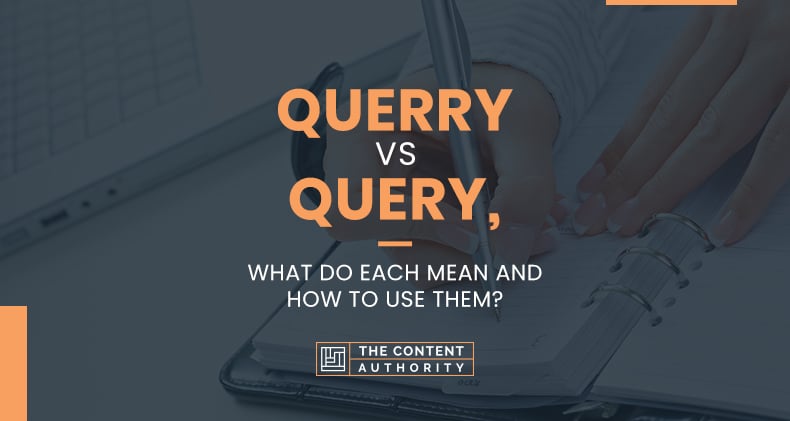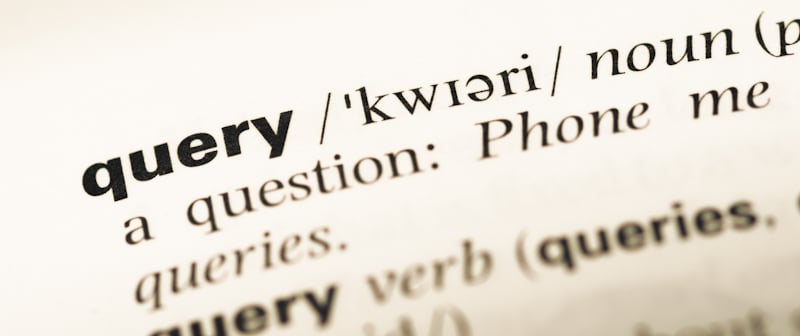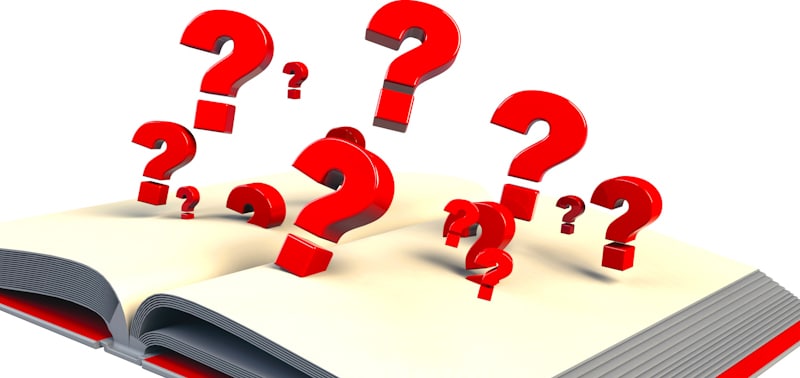Maybe you got confused about the spelling of these words, or you wondered what they mean. Despite them sounding remarkably similar, their definition is entirely different. In this article, we will review them and how to use them appropriately.
The term “Query” means asking a question, and you use this word when in doubt or when you want to know more information. Regarding the expression “Querry,” it is an obsolete way of saying “equerry,” which describes an officer that attends the British royal family.
Pretty interesting, right? What are some examples and usage of these words in daily life, and where does it come from? Keep reading to find out.
Definition And Usage
The term “querry,” as stated earlier in the article, is an ancient form for “equerry,” which refers to an officer of a royal household that assists the British Royal family.
Historically, it was also considered an officer of the home of a prince or noble in charge of the care of the stables and horses, according to the Oxford Dictionary. This is used to describe the occupation that this individual has and their obligation to assist the members of the British Royalty in fulfilling public duties. Even though “querry” is rarely used, the correct and most common word is “equerry.” It is so obsolete that it is hard to find in dictionaries.
The word “query” has various definitions depending on whether it is used as a noun or as a verb. If used as a noun, it simply means a question, inquiry in mind, or doubt, according to Merriam-Webster’s Dictionary. It often expresses concern about something or is utilized for looking for more information, especially in regards to a particular individual.
Regarding the usage as a verb, it asks questions to resolve a doubt from a desired person or authority. It is used to seek for more information about something and validate or question if the statement is correct or not.
Examples With Sentences
Now that we fully comprehend the meaning and usage of these terms, we can start analyzing some examples.
Here are some sentences with the word “query” as a noun:
- I asked her about a possible salary raise, but she just smiled instead of answering my query.
- I told the McDonald’s cashier I had a query about my order. It seems that I was charged for extra fries without asking for them.
- Before buying the book, the librarian answered my query by explaining everything.
- The average time to respond to a customer’s query is less than sixty seconds.
- When answering a query in front of a large group of people, take a moment to analyze the question and focus on answering the best way possible.
- He’s used to social media queries about his personal life, yet he doesn’t respond to any to keep it private.
- The first answer to your query on Google is the most popular search.
- The show producers choose the query from fans carefully, making sure they’re not overly personal questions relating to the actors’ lives.
- I went to the Dean’s office so he could answer a query I had about my degree.
- She asked her boss a query about the possible salary raise for the employees. He answered that it was no longer convenient at this time due to the company’s financial situation.
Here are some example sentences with the term “Query” as a verb:
- The teacher encourages the students to query about the topics treated in class.
- After listening to the debates, she queries the statements made.
- Once the party was over, everybody queried Matt’s presence and noticed he left earlier due to a family emergency.
- Now that I know him better and his intentions, I query if he is a trustworthy person.
- The Quality Analyst queries the performance of the software before presenting it to the client as the final product.
- If you query how we manage your privacy on the platform, send us an email, and we will answer all of them.
- The training’s purpose is to query trainees about the company’s processes and how they are performed.
- His statements are so well supported with astonishing facts and evidence that it is hard to query them.
- The mother queried her son after she noticed he came late at night.
- Did you query his intentions after how he reacted?
Finally, some sentences with the term “Querry/Equerry.”
- Sir Arthur sent a querry to supervise the new horses sent from Austria.
- He was assigned the duties of the querry since he moved far away.
- Queen Elizabeth appoints the first black querry.
- He became a querry to the Duchess of Cambridge.
- The royal family has a querry that is in charge of taking care of the horses.
- He was a querry to Prince Augustus Frederick, Duke of Sussex.
- From 1960 until 1975, he served as an extra querry for the royal family.
- Around the 1970s, he was appointed as a temporary querry to the Queen.
- Her grandfather was established as a querry to the Queen in 1965.
- He enjoyed listening to his friend’s experiences as a querry to the royal family.
Synonyms
Query: question, inquiry, interrogation, examination, quiz, quizzing, doubt, uncertainty, question mark, reservation, suspicion, skepticism, ask, inquire, call in/into question, dispute, suspect, questioning, concern, dubiety, interrogatory, mistrust, distrust, distrustfulness, incertitude, misgiving, mistrustfulness, etc.
Querry (equerry): attendant, aid worker, companion, caregiver, family liaison officer, mentor, right-hand man, aid worker, social worker, personal assistant, functionary, tender, attender, officer, royal officer, retainer, stableman, groom, servant, stable lad, errand runner, bellhop, etc.
Antonyms
Query: agreement, answer, reply, belief, certainty, confidence, faith, trust, credence, assurance, certitude, conviction, sureness, surety, trust, etc.
Querry (equerry): leader, ruler, king, boss, dominant, rival, opponent, manager, commander, chief, principal, primary, prime, etc.
History and Etymology
Querry
It is fascinating learning about the history and origin of certain words, mainly because we see their evolution and how they transformed into what we know today.
Let’s start with the term “querry” or “equerry.” This word emerged in the early sixteenth century, formerly known as “equiry.” It was also associated with the Latin term “Equus,” which means horse. It was a short form for “groom of the equirrie” in the 1550s.
Its roots are traced back to the French word “escuerie” and Modern French “écurie,” also Medieval Latin “scuria,” which stands for “stable.”
Historically, equerries were officers in charge of the royal family’s stables. Nowadays, this occupation must also personally assist the Queen with her duties.
According to the writings of Fanny Burney, a second keeper of the robes of Queen Charlotte, she would often illustrate the job of equerries. She expressed how they worked on a rotation basis since they were in constant assistance for three months of the year. Then they had nine months off of service before another one started. She explained how laborious and exhausting this duty used to be since it is a very demanding role.
Query
The term “query” appears around the seventeenth century as an adapted form of the imperative Latin word “quaere!” used back in the sixteenth century in English as a verb meaning “inquire.” As a noun, it was defined as “query” to indicate question or doubt. It came from Latin “quaerere,” which meant “to ask, inquire, or seek.”
Around the 1600s, the spelling was altered due to its influence on the English word “inquiry.” Then, used as a verb around the 1650s-1680s to ” ask questions or express doubt.”
Conclusion
It can be concluded that “Querry,” besides it being an obsolete term for “equerry,” still means the same thing. It is used to describe an officer for the British royal family that assists other royalty members and takes care of the horses or stables. In regards to “Query,” this can be used in two forms. As a noun, it means a question and inquiry, and as a verb, it means asking a question or expressing doubt.
Shawn Manaher is the founder and CEO of The Content Authority. He’s one part content manager, one part writing ninja organizer, and two parts leader of top content creators. You don’t even want to know what he calls pancakes.



